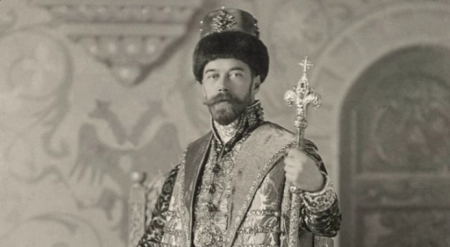Russia 'restraining' the Antichrist? Orthodox Church believes last czar 'held back satanic socialism'

While many commentators identify the restrainer as the Holy Spirit who works in and through the Church and whose subsequent removal necessitates a "pre-tribulation rapture" scenario, this identifying of Russia as the restrainer, according to Riccardi-Swartz, is reinforced by the canonization of Nicholas II, whose intercessions are believed to protect Russia from evil.
As such, Riccardi-Swartz said, this "holy war" narrative serves as an appeal to Russian nationalism and a denunciation of modern Western values, further cementing Kirill's alignment with Putin's agenda to depict Russia as a defender of traditional Christian values.
"It's clear that both Putin and the Moscow Patriarchate (Patriarch Kirill) are using language that aligns with this theological opinion," she told CP. "They often position themselves as if they — and Russia as a nation — are on a holy mission to preserve traditional values from Western secularism."
This ideological overlap between the Russian Orthodox Church and the Kremlin, said Riccardi-Swartz, is one of mutual benefit.
"Scholars have been quick to point out that there seems to be a cozy relationship between the Kremlin and Russian Orthodox Church," she says. "It's also clear from recent policies, particularly around [LGBT] and human rights, that religious values are playing a valuable role in crafting governance and marketing a Christian conservative Russian ethos for interested parties abroad even if that's not the reality on the ground."
While theologically controversial, particularly among American Protestants and Evangelicals, Riccardi-Swartz said the "Russia as restrainer" notion "provides what some right-wing Orthodox thinkers have termed 'cosmic significance' to the deaths of the czar and Romanov family. It is a useful theological opinion for those who are interested in decrying secularism and what they see as rising socialism."
This identity of a divine restrainer, she added, has been broadened to include post-Soviet Russia, where Putin is seen by some as part of this larger cosmic struggle.
"Putin becomes, in the words of one monk I interviewed, an 'echo' of the last czar," Riccardi-Swartz notes. "Folks like this monk see Putin's Russia as the last bulwark against the modern West, and they often frame it as a traditionalist haven and perhaps even a traditionalist empire one day."
Riccardi-Swartz acknowledged that while "the concept of a restrainer is largely esoteric and not on the radar of most everyday Orthodox," the idea has gained popularity among far-right Orthodox circles, especially among those converts who are active on social media.
She pointed to the influence of Father Seraphim Rose, a mid-20th-century California convert to the Russian Orthodox Church Outside of Russia, whose views on the Russian czar and secularism have had a lasting impact.
Rose, who died in 1982, has "has become a guiding influence for white male converts, the largest demographic group to convert in the United States, who feel disillusioned with American society and politics," Riccardi-Swartz said.
"For them, Rose's ideas are gospel, and that gospel is pushed out through their social media channels and accounts, giving them an extended and substantial reach, even though their numbers are not astronomical," she added.
Over the years, Russian clergy have viewed other military conflicts with divine meanings. When Napoleon Bonaparte invaded Russia in 1812, many clergy in the Russian Orthodox Church labeled Napoleon the Antichrist and viewed the invasion as a holy war. Orthodox clergy were accused of deceiving peasants by telling them the French were a "legion of devils commanded by the Antichrist," according to Napoleon.org.
The Russian Orthodox view of Russia as a symbol of Christendom flies in the face of dispensationalist eschatology held by many American Evangelicals who believe that Russia will play an adversarial role in Bible prophecy, particularly in relation to the Middle East and Israel.
Evangelical pastors like Greg Laurie have speculated that Russia's war with Ukraine could ultimately conclude with the Gog-Magog attack on the land of Israel depicted in Ezekiel 38.
While this view is not part of mainstream Russian Orthodox theology, Riccardi-Swartz notes that the idea of Russia as a key player in the End Times has gained traction, especially among American converts influenced by figures like Rose.
"Prophecy has never been a dogmatic issue for the Church," she explains. "However, theologoumena allow for a variety of opinions about the eschaton," which refers to a Greek phrase translated as "last days."
She said Rose's ideas, which emphasize spiritual battles and the role of orthodoxy in preparing the world for Christ's return, have resonated with many American converts.
"For many American converts, especially those influenced by Rose, Russia becomes the global figure that provides salvific refuge for the faithful at the end of all time," Riccardi-Swartz said.





















